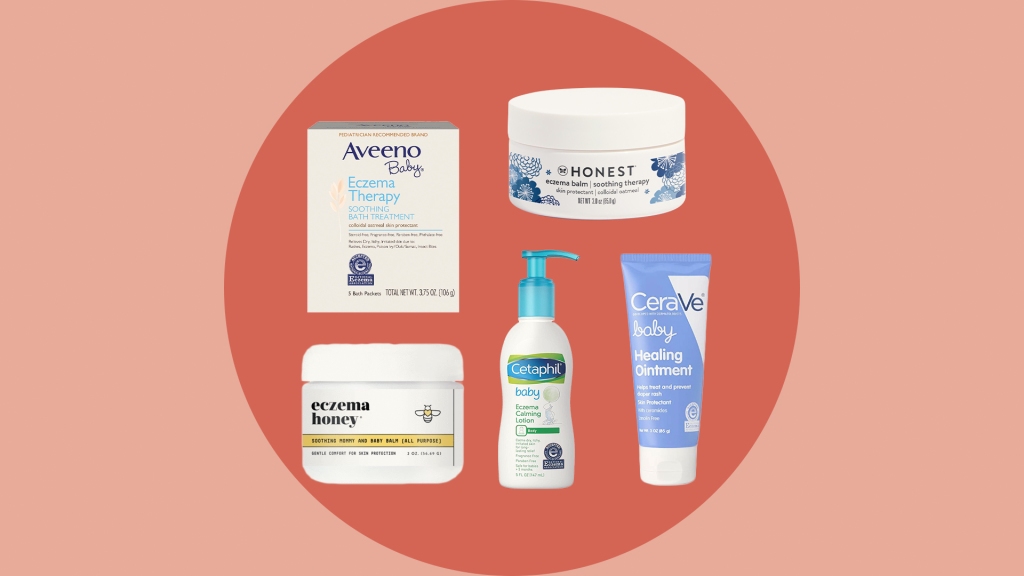If you purchase an independently reviewed product or service through a link on our website, SheKnows may receive an affiliate commission.
When your little one suffers from eczema, all you want to do is make them feel better — and using eczema products that soothe kids’ skin is a great way to start. But it’s important to have a deeper understanding of it. “Eczema is generally a hereditary condition,” Latanya T. Benjamin, MD, FAAD Associate Professor of Pediatric Dermatology and Consulting Dermatologist for Mustela, tells SheKnows. “Eczema is 40 to 50% more likely to occur in children if one parent has a history of the condition. This increases to 50 to 80% if both parents suffer with eczema.”
So how is eczema different in children from adults? “Generally, it’s the same idea,” Dr. Hadley King, MD, Clinical Instructor of Dermatology at the Weill Medical College of Cornell University and Consulting Dermatologist for AcneFree, tells SheKnows. “Although it’s possible to develop adult-onset eczema, most adults who have eczema have had it since childhood. For most kids, eczema improves with age but this is not true for everyone.”
Eczema can be further irritated by heat and sweating, as well as allergens. “About half of my pediatric patients have worse eczema in the wintertime (due to excessive dryness of the skin and lack of atmospheric humidity) and the other half in the summer (due to heat that triggers intense itching),” Benjamin says. “Unfortunately, patients with the worst cases of eczema can be impacted year-round.”
Though eczema is mostly hereditary, there are other things that can trigger it, namely stress — which “never helps any skin condition, whether it be acne, psoriasis or eczema,” Benjamin says.
Aside from keeping your kid zen, there are other things parents can do to help their children’s eczema stay under control. For starters: Learn to identify — and avoid — your child’s specific triggers that result in an eczema flare, Benjamin says. Also, anyone with eczema should avoid excessive drying of the skin — so say goodbye to long hot baths or showers and stick to bathing in cooler water. Avoid harsh detergents and soaps, products with fragrances and any known allergic foods identified on formal testing, such as shellfish and peanuts.
Tending to the skin barrier is the key to managing eczema, King says. “This means diligent use of hydrators and emollients and cleansing only with very gentle soap substitutes that won’t strip the skin of its natural oils and dry out the skin like detergents can. Humidifiers can also be helpful. When necessary, there are prescription medications that can be used to manage eczema, including topical and systemic corticosteroids and other immunomodulators.” (Scared to use topical corticosteroids because of possible side effects? King cautions that although there are possible side effects, “when these medications are used appropriately they can be both safe and effective.”)
The fact is, eczema is a chronic condition that comes and goes, so parents shouldn’t blame themselves when a flare-up happens. Just stick to your child’s skincare routine and it will get better. “Consistency and maintenance are key for eczema-prone skin,” Benjamin says. So consider adding these eczema products, which are specifically designed to soothe kids’ skin, to your little one’s routine:
Our mission at SheKnows is to empower and inspire women, and we only feature products we think you’ll love as much as we do. Please note that if you purchase something by clicking on a link within this story, we may receive a small commission of the sale and the retailer may receive certain auditable data for accounting purposes.
A version of this story was published October 2019.
Source: Read Full Article
